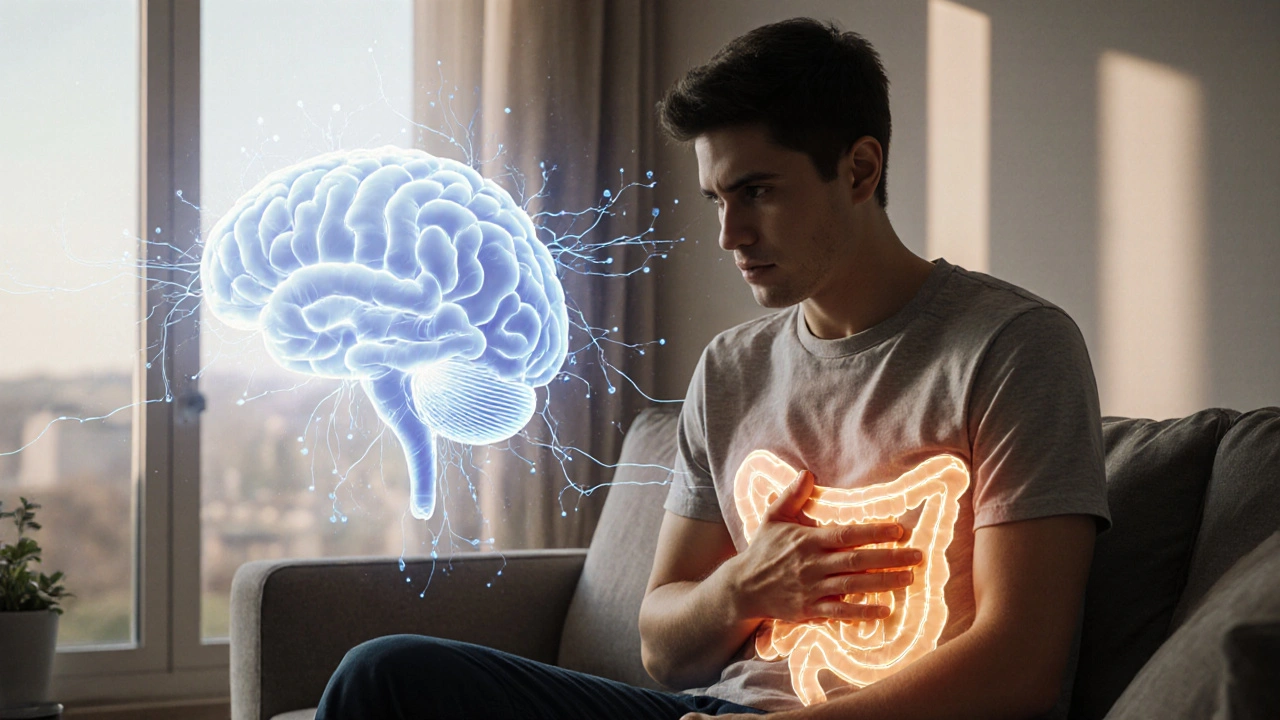Mental Health and Colitis: How Stress, Gut Health, and Medications Interact
When you have colitis, an inflammatory condition of the colon that causes diarrhea, cramping, and fatigue. Also known as inflammatory bowel disease, it doesn’t just affect your digestive system—it pulls on your mental health too. People with colitis are far more likely to experience anxiety, depression, or panic attacks than those without it. This isn’t just because living with chronic pain is hard. There’s a real, biological link: your gut and brain talk to each other constantly through the gut-brain axis, a two-way communication network linking the nervous system in your intestines to your central nervous system. When your colon is inflamed, it sends distress signals to your brain. And when you’re stressed or anxious, your brain sends back signals that make the inflammation worse. It’s a loop—and breaking it isn’t just about pills.
Many people assume that if their colitis symptoms improve, their mood will fix itself. But that’s not always true. Studies show that even when inflammation is under control, depression and anxiety can stick around. That’s why treating colitis alone isn’t enough. You need to treat the whole person. Some antidepressants, like SSRIs, aren’t just for mood—they can actually reduce gut inflammation and ease bowel symptoms. On the flip side, some colitis meds, like corticosteroids, can trigger mood swings, insomnia, or even mania. And if you’re taking multiple drugs, interactions matter. For example, if you’re on an SSRI and also use an anti-inflammatory like aspirin, you might raise your risk of bleeding. It’s not just about what you take—it’s about how everything works together.
The connection runs deeper than medication. Sleep loss from nighttime cramps, social isolation because you can’t leave the house, the fear of sudden flare-ups—all these things chip away at your mental resilience. And when your mental health dips, your body’s ability to heal slows down. It’s not in your head—it’s in your biology. The good news? Simple changes help. Regular movement, even a short walk, reduces both inflammation and anxiety. Mindfulness practices, like breathing exercises or journaling, have been shown to lower flare-up frequency. And talking to someone who gets it—whether a therapist, a support group, or even a knowledgeable doctor—can be as powerful as any drug.
What you’ll find below are real, practical guides that connect these dots. You’ll read about how antidepressants like fluoxetine affect gut function, how steroids like prednisolone can change your mood, and why some pain relievers like aspirin might help or hurt depending on your situation. There’s no fluff here—just clear, direct info on what works, what doesn’t, and what to watch out for when your gut and your mind are both in trouble.
